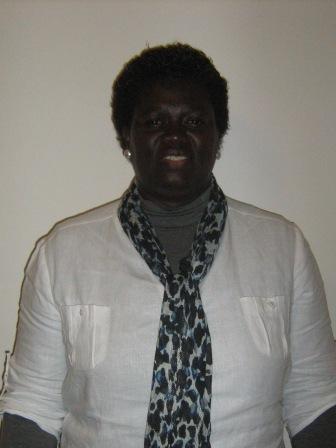
Dr Mercy Akrofi Ansah, a visiting scholar from the University of Ghana, took the Rhodes Linguistics department on a virtual tour of a small town in her country as she spoke about language choice in a multilingual community in a Departmental Research Seminar on Tuesday 8 May 2012.
The small town in question is Larteh, which is about 23km north of Accra. About 79 languages are spoken in Ghana, but in this town three are used: Leteh, the home language of most of the townsfolk; Akuapem Twi, the local literary language; and English. These languages exist in a relationship known as triglossia, where three different languages are used to carry out different activities.
In her tour, Dr Ansah took us to three different contexts to see what languages were used there: a funeral, a church service and a school lesson. Leteh is spoken for most of the traditional funeral ceremony, which stretches out over several days. In church, Twi is the language of choice. One of the reasons for this is that it is an established written language, unlike Leteh, which is almost never written down. This means that there are Bible translations and hymnbooks in Twi, but not in Leteh. In the school, a Grade 1 teacher switches between Twi and English to conform to Ghana’s language policy on education.
Dr Ansah said she found that the range of places in which Leteh was spoken is shrinking, putting the language in danger of being lost altogether. This sparked a lively discussion among those at the seminar on whether and how endangered languages should be revitalized.
Dr Ansah is visiting Rhodes University as a Post-Doctoral Fellow in the American Council for Learned Societies / African Humanities Post-Doctoral Programme. Her main research interests are in the morphosyntax of Leteh, language contact phenomena and adult literacy.
